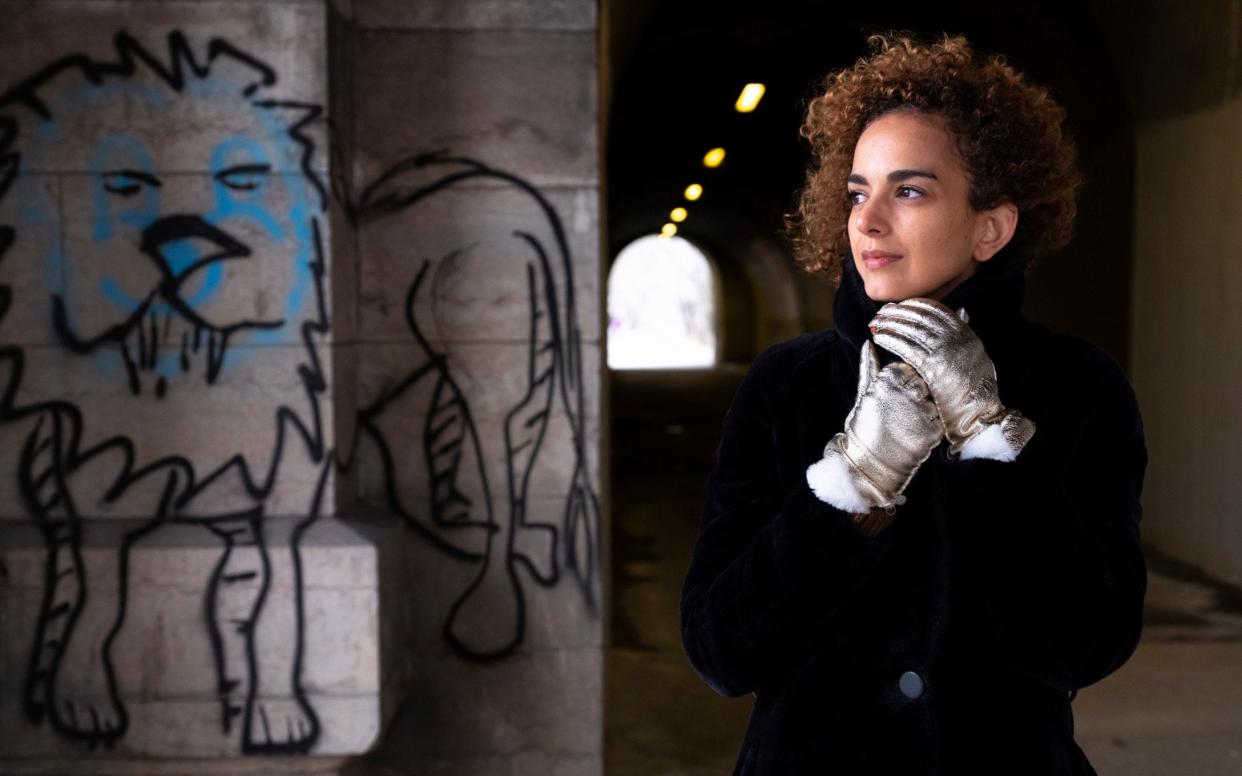Lullaby author Leïla Slimani on sex and power: ‘If women want to be passive, let them’

When Leïla Slimani was 15, she became fixated with the infamous murder scene in Dostoevsky’s Crime and Punishment, in which the impoverished anti-hero Raskolnikov bludgeons to death an old woman with the blunt edge of an axe. Slimani read it exactly 20 times.
“I was completely crazy about this scene. I could see the room. The woman. The blood. I loved the idea that we all have a monstrosity inside of us,” says the 37-year-old. Slimani’s own monstrous creation, the seemingly perfect nanny who kills her two young charges in her hit novel Lullaby, has a similar notoriety.
Lullaby won France’s most prestigious literary prize, the Goncourt, in 2016, and has been translated into 44 languages, prompting Emmanuel Macron to hire Slimani as his representative of francophone affairs (she turned down his offer of culture minister: “I want to sleep!”). A film adaptation of Lullaby will soon premiere at Cannes.
Now, another monster from the fertile imagination of the Franco-Moroccan author has emerged from the shadows. A translation of her debut novel, Adèle, about a female sex addict, has just been published in the UK. While Slimani tackled the taboo of imperfect motherhood in Lullaby, with Adèle she broaches the theme of female desire. Slimani here presents a female body, so often glamorised in the media, at its ugliest.
The book (loosely inspired by the scandal surrounding Socialist politician Dominique Strauss-Kahn, who supposedly hired prostitutes for sex parties) is heavily reminiscent of Flaubert’s Madame Bovary. Adèle is beautiful but bored; a middle-class woman whose only aim in life is to be admired. Her husband, like Madame Bovary’s, is a doctor whose dull, unquestioning love suffocates her: “She finds her life small, shabby, lacking in grandeur. Their money smells of work, of sweat…”
Eventually, Adèle’s lust becomes insatiable, culminating in a drug-fuelled orgy that leaves her physically injured. Her body, no longer governed by the need to eat or sleep, existing solely for sex, begins to break down. As do her job, her friendships and her family. Our empathy, too, wears thin. The crisis point comes when Richard comes across Adèle’s second phone, on which he finds obscene messages to and from one of his colleagues. Like a switch, he turns on her, while Slimani turns the reader on him. Suddenly we start to root for Adèle.

Slimani’s complicated female heroines feel on trend, and very different from the idea of womanhood offered when she was younger. “I remember in the Nineties, when Madonna, Beyoncé and Sharon Stone were famous, the trend was empowerment. But I hated that. I was very afraid of this kind of woman. It didn’t excite me. I wanted to describe someone else. A woman who hates power. Who wants to be dominated,” says Slimani.
She’s not saying that women shouldn’t be empowered exactly, but she does believe that there are advantages to letting men at least feel they are dominant. “Despite women being in a position of inequality, it also gave women a lot of tools to manipulate them. We know men very well, we know what they want, and we know what we can do to defend ourselves. Many women don’t say it but we know. Men are very naive in a way when you think about it.”
When we meet, a few metro stops from her home in Pigalle (Paris’s red-light district), Slimani is dressed in a long, black fur coat and bright gold gloves. As we walk on the banks of the Seine, she pauses to observe a severed tree trunk, inexplicably covered in chains and floating, macabrely, in the water. “It looks like a corpse,” she says, as if storing the image in her mind for later. She resumes: “Today, not being a feminist is a taboo. But I think if women want to be passive, then let them.”
Emile Zola has been a great influence on Slimani’s work (she has named her young son Emile), chiefly in his unflinchingly realistic depictions of poverty, sex and death. You can see it in Adèle, where Slimani’s style is similarly cold and detached. The graphic sexual imagery is precise and clinical. “When it comes to sex, our vocabulary is very poor,” says Slimani. “It is either overly glamorous or pornographic. It is very difficult to find something neutral.” At one point, Slimani describes the sounds of lovemaking as “like a toilet plunger: torsos sticking…”
Like Zola, Slimani is also interested in pricking the Parisian bourgeois bubble, which she acknowledges she is part of. When we met, the gilets jaunes were still rioting. “I would love to describe the way the bourgeoisie react to this crisis. We live only for ourselves. We want to go and eat quinoa, for our children to speak English and play the violin,” she says, rolling her eyes. “And sometimes, when they talk about the gilets jaunes, you can hear the violence in their words. It’s shocking, these nice and polite people, saying such terrible things.”
Politics is at the heart of Slimani’s next novel, which she has decided to sit on for another year. “Because it would have complicated consequences on my personal life, politically,” she says, refusing to elaborate. Possibly, it is linked to her experience as a “bad immigrant”. “I’m supposed to say the French are racist and that, as an Arab woman, I am a victim. The effects of my writing make me feel unsafe. Both in France and in Morocco,” she told me earlier. In France, she is made to feel “other”: “With insults saying I should go back to my country; that my Muslim brothers came here to kill.”

And yet her relationship with Morocco is just as complicated. “It’s like a love story,” she says. “I wanted Morocco to love me. To stop seeing me as a stranger because I’m a French-speaking liberal. So I wanted to conquer this country like you want to conquer a man. But the truth is, it never loved me like I wanted it to love me.”
So instead, Slimani has begun to write something else. A horror novel. “It’s going to be very dark, like a Stephen King book, she says excitedly. “Because the time we’re living in is like a horror movie.” True to form, Slimani will tackle another societal taboo: old age. “My mother is 70, and she told me I should write about the invisibility women face once they age. So my next character will be an old woman. I’m also interested in the way older women dominate their husbands. A woman can become cruel, seeking revenge for all the years she was dominated. I saw it with my grandmother and now my mother.”
As dusk falls and Slimani turns her back on the Seine, she tells me about the need to protect herself. She has no social media, and doesn’t engage online. “I don’t want my mother or my children one day reading a man saying he knows where I live and that he wants to rape me; to kill us,” she says.
However, she receives letters, and recalls one in particular from a man. “He said that he knew Adèle; he had been married to her and hated her for many years. But then, after reading my book, he realised she was not a bad woman. She was simply suffering. He decided to call her, for the first time in a long time. To tell her that he finally understands.”
Adèle is published by Faber. To order your copy call 0844 871 1514 or visit the online Telegraph Bookshop


